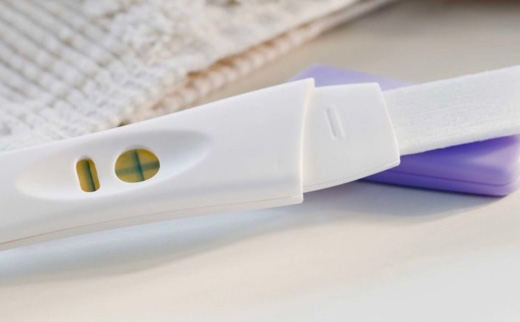
hCG (Human Chorionic Gonadotropin) often called the pregnancy hormone is a hormone that is only produced by the placenta during pregnancy.
The fertilization of the woman's egg by the man's sperm takes place in the woman's tubes, and as a result of fertilization, an embryo is formed. In the outer layer of the embryo, trophoblastic cells develop, which enable the embryo to attach to the uterine wall. These trophoblastic cells secrete the hCG hormone called Human Chorionic Gonadotropin hormone. The unique role of hCG is to support pregnancy.
Within 5 to 6 days after fertilization, the embryo settles in the inner layer of the uterus and starts to secrete more and more hCG hormone. hCG is found in urine or blood around 10 to 11 days after conception (when a sperm fertilizes an egg). It takes slightly longer for hCG to register on urine tests.
Women cannot understand this process because the expected menstrual date has not come yet. Although secreted hCG is found in blood and urine, measurements done before the expected period day cannot show whether the pregnancy is present or not.
If there is a delay in the expected period, the hCG hormone can be measured in the blood or urine to determine whether there is a pregnancy or not. Tests performed before the expected period do not give accurate information, the hCG test has nothing to do with ovulation tests, ovulation tests can only give information about the day of ovulation and do not show whether there is pregnancy or not.
Tests performed earlier than the calculated date or incorrect calculation of the last menstrual period may result in low or negative tests. For this reason, in doubtful cases, the test should be repeated after a few days.
The hCG hormone plays a vital role in early pregnancy as it helps the corpus luteum, and helps maintain the uterus lining. Since this hormone is produced by the fertilized egg and later the placenta, it’s a useful hormone to detect pregnancy.
Women who are suspected of pregnancy can tell if they are pregnant with an hCG test from blood or urine. These tests are easily done at home and also in health centers. It is detected earlier in blood than in urine.
The test made from the blood sample taken from the arm can clearly measure the amount of the hormone and determine the actual level of hCG while giving information about the approximate week of pregnancy. The hCG test in the urine can only give information as if there is a pregnancy or not. The most suitable sample for a urine test is the first urine in the morning.
It may differ depending on the laboratory where the hCG test is performed, the method used, or the instruments in which hCG is measured. The hCG hormone is measured in milli-international units per milliliter (mIU/mL).
hCG values represent the following:
When hCG value is below 50 U/L, it can be re-measured at 48-hour intervals to monitor whether the hCG has increased.
The average levels of hCG in a pregnant woman’s blood are:
A transvaginal ultrasound should be able to show at least a gestational sac once the hCG levels have reached between 1,000 – 2,000 mIU/mL. Because levels can differentiate so much and conception dating can be wrong, a diagnosis should not be made by ultrasound findings until the hCG level has reached at least 2,000 mIU/mL.
At-home urine tests detect whether a pregnancy has occurred. hCG hormone begins to be secreted at a measurable rate about 7-10 days after fertilization occurs. However, if the home pregnancy test is done in the early period, the result may be negative so it is necessary to wait for the menstrual day for the test.
Various tests available on the market have different sensitivities. Some tests identify lower levels of the hormone, while others may require the secretion of higher levels of hCG to detect pregnancy. If the test result is negative but still the period has not come, a pregnancy test should be done again.
Some Medicines:
A recent miscarriage or abortion.
Certain medical conditions:
A pregnancy test can be done 14 days after egg retrieval, twelve days after day 3 embryo transfer, or 10 days after day 5 embryo transfer in IVF (in Vitro Fertilisation) treatments. The blood test or a urine test will detect and measure hCG, the “pregnancy hormone.” The hCG level generally doubles every 2-3 days in early pregnancy.
An early at-home pregnancy test during IVF treatment does give false results.
HCG values are not a simple blood test, they include many clinical conditions about whether the pregnancy is healthy, as well as other diseases other than pregnancy. the hCG test results should be evaluated together with the doctor's examination. Although there are possible findings of pregnancy and hCG values show pregnancy, the definitive diagnosis of a healthy pregnancy is made by seeing the gestational sac and the baby’s heartbeat on ultrasound examination.